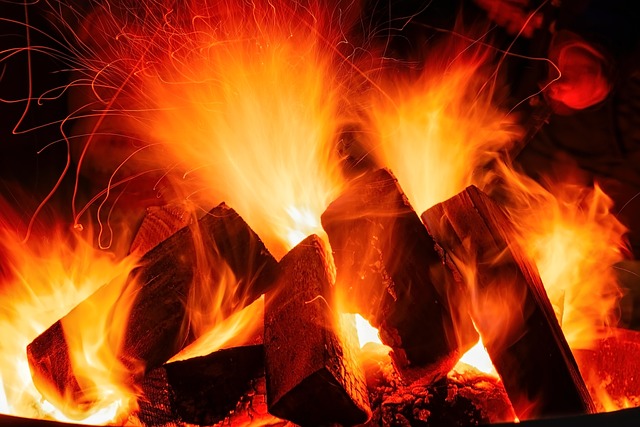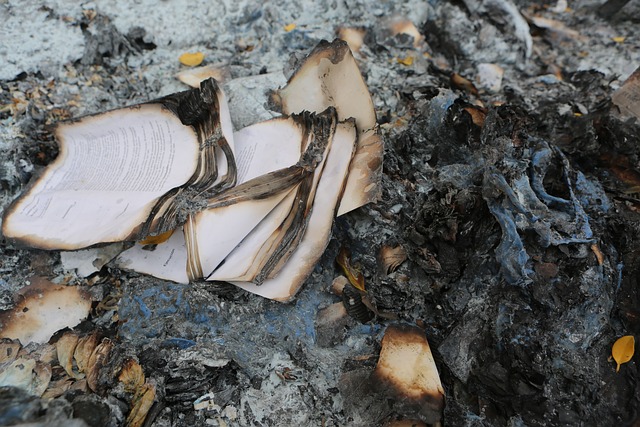Selling a fire-damaged home in Houston requires adhering to strict Texas property disclosure laws. Sellers must fill out a Property Disclosure Form detailing the fire's timeline, damage extent, and repairs. Buyers should conduct thorough inspections. Transparency is key to protect both parties from post-sale legal issues and ensure fair decisions in the competitive Houston real estate market.
“In Texas, property disclosure laws play a pivotal role in ensuring transparency during real estate transactions, especially when selling fire-damaged homes in bustling Houston. This article guides you through the intricacies of these laws, focusing on key aspects like what sellers must disclose and buyer rights. We explore the legal considerations unique to fire-damaged properties in Houston, debunk common misconceptions, and highlight material facts and defects that require revelation. By understanding these regulations, both sellers and buyers can navigate transactions with confidence.”
- Understanding Texas Property Disclosure Laws
- Selling Fire-Damaged Homes in Houston: Legal Considerations
- What Sellers Must Reveal: Material Facts and Defects
- Buyer Rights and Protections in Texas Real Estate Transactions
- Common Misconceptions About Property Disclosures in Texas
Understanding Texas Property Disclosure Laws

In Texas, selling fire-damaged homes in Houston comes with specific legal requirements known as property disclosure laws. These laws are designed to ensure transparency between sellers and buyers during real estate transactions. Understanding these regulations is crucial for anyone looking to buy or sell a property affected by fire damage.
The key aspect of these laws revolves around disclosing any known defects, including structural issues, water damage, mold, or previous fires. Sellers must provide a Property Condition Disclosure Statement (PCDS) outlining these details to buyers. For selling fire-damaged homes Houston, this process is essential as it helps set clear expectations and prevents potential disputes in the future. It’s also important to note that disclosure laws vary slightly across Texas, so local regulations should be consulted for precise compliance.
Selling Fire-Damaged Homes in Houston: Legal Considerations

Selling a fire-damaged home in Houston, Texas, involves navigating specific legal considerations to ensure compliance with property disclosure laws. If a home has suffered significant damage from a fire, potential buyers will want transparency about the extent and nature of those damages. Houston’s real estate market is bustling, but selling a fire-damaged property requires careful documentation and disclosure to protect both the seller and buyer.
In Texas, sellers are required to disclose known defects or hazards on the property, including damage from fires. Sellers must provide a Property Disclosure Form, stating whether they are aware of any issues and, if so, describing them in detail. For fire-damaged homes, this includes information about when the fire occurred, the extent of the damage (structural, to fixtures, etc.), and any repairs made or planned. Open and honest disclosure is crucial to avoid legal issues post-sale. Buyers should also be encouraged to conduct thorough inspections to understand the full scope of any fire damage and associated repairs needed.
What Sellers Must Reveal: Material Facts and Defects

When selling a property, especially in the case of fire-damaged homes in Houston, Texas sellers are legally obligated to disclose specific information that could impact a buyer’s decision. This includes revealing any material facts and defects known to the seller about the property. Material facts refer to significant details that would influence a reasonable buyer’s perception of the home’s value or safety. For instance, a prior fire damage incident is considered a material fact, as it can affect structural integrity and potential insurance claims.
Defects, on the other hand, encompass physical conditions that differ from typical wear and tear. Sellers must disclose known defects like significant water damage, roof issues, faulty electrical systems, or any other problems that could result in safety hazards or increased maintenance costs. Given that Houston experiences varying weather patterns, including potential storms and hurricanes, sellers must be particularly vigilant about disclosing any history of flood damage or related structural concerns.
Buyer Rights and Protections in Texas Real Estate Transactions

In Texas, real estate transactions are governed by a set of laws designed to protect both buyers and sellers. When it comes to buying fire-damaged homes in Houston, buyers have specific rights and protections. According to state law, sellers must disclose any known material defects or hazards on the property, including previous fires that may have affected its structural integrity or safety features. This transparency ensures buyers are fully informed about potential issues that could impact their investment.
For instance, if a home in Houston has experienced a selling fire, the seller is legally obligated to reveal this history and provide relevant details. Buyers can then make an informed decision, conduct inspections, and potentially negotiate terms based on the extent of the damage and repairs required. This process empowers buyers to protect themselves financially and avoid unforeseen problems that could arise from purchasing a fire-damaged property.
Common Misconceptions About Property Disclosures in Texas

Many potential homebuyers in Texas hold certain misconceptions about property disclosures, especially when it comes to selling fire-damaged homes in Houston. One common misunderstanding is that sellers are not required to disclose any historical or current damage to the property. However, this is not true; Texas law mandates comprehensive property disclosures. Sellers must inform buyers about any known issues, including structural problems, water damage, mold, and yes, even fire damage.
Another misconception is that disclosing fire damage automatically lowers the property’s value. While it’s true that fire-damaged homes may require repairs, transparent disclosure encourages honest communication between seller and buyer. It allows potential buyers to make informed decisions, seek expert opinions, and either proceed with a negotiation or walk away, ensuring a fair transaction process in the competitive Houston real estate market.
When selling fire-damaged homes in Houston, it’s paramount to comprehend and adhere to Texas’ property disclosure laws. These regulations ensure transparency between sellers and buyers, shielding both parties from unforeseen legal pitfalls. By disclosing material facts and defects, including fire damage, buyers can make informed decisions while sellers avoid potential liabilities. Understanding your rights and responsibilities as a seller is crucial in navigating these laws effectively, fostering trust, and ensuring a smooth real estate transaction in Houston’s competitive market.






